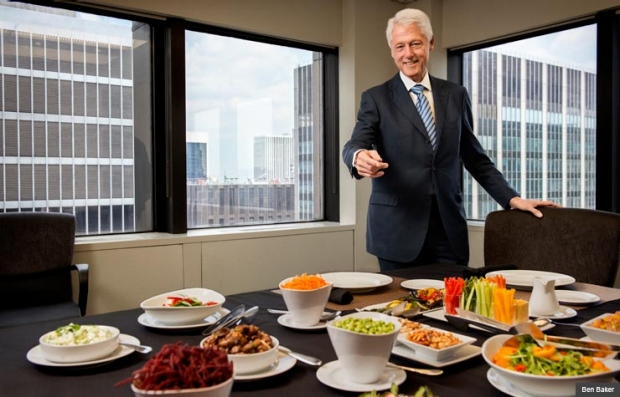
After nearly dying from heart problems arising from years of a meat-heavy diet, former US president Bill Clinton was forced to make a change. His doctors recommended he eliminate all the meat and dairy from his diet. He has said that he was at first reluctant to do so, but gradually removed all the animal products from his diet — and now he’s thrilled with his diet and his newfound health.
Joe Conason of AARP magazine recently met (and dined) with President Clinton, and found the vegan meal and conversation was an eye-opening (and even mouth-watering) experience for him:
When Bill Clinton invited me to lunch in May, I knew better than to expect fried catfish or barbecued ribs. The former president is now a devoted vegan… and he has pursued a healthier way of life for more than three years. While I figured our lunch menu might be bland, that would be a small price to pay for private time with a world leader who is anything but.
As it happens, the fit, trim and sharply attired Clinton, whom I’ve come to know well during more than two decades covering his career, is his usual gregarious, charismatic self. But a bland menu? Not even close.
And President Clinton was happy to tout the benefits of his new diet:
I’ve stopped eating meat, cheese, milk, even fish. No dairy at all.” He smiled and yanked on his waistband. “I’ve lost more than 20 pounds so far, aiming for about 30 before Chelsea’s wedding. And I have so much more energy now! I feel great.
You can read the full article at the AARP website here.
